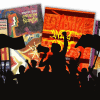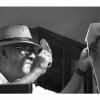Memoirs of our unsung heroes

Massacre, murder, torture, violence, bayonet, bloodshed, grenade, displacement, death—these words bring to mind a war scenario. To place an infant country on the world map, Bangladeshi people, irrespective of gender, race, or class, dedicated their lives to achieve independence. This heart-wrecking saga lasted for nine perilous months. Later, the nation acknowledged only one slice of those sacrifices and turned a blind eye to the countless others and their sacrifices. This other group has been sentenced to a lifetime of isolation, shame, and segregation for sins they didn't even commit. Memoirs of War Victims 1971 presents over 50 narratives from different districts of the country on such themes. Each narrative offers a unique perspective on the female war heroes and other war victims. "The Pakistanis humiliated us, raped us but our own people are no better than them."--thus speaks a frustrated war hero in Memories of War Victims 1971. The book illustrates the impact and aftermath of the '71 war on individuals and families by means of a quintessential first person narrative.
The book is originally written in Bangla by Surma Zahid and later translated in English by Abdus Selim. The first edition of the book published in 2014 was titled Violated in 1971 as per the suggestion of then Bangla Academy President Dr Anisuzzaman. The second print edition from 2018 bore the same title. However, on February 26, 2023, the Standing Committee of the Ministry of Cultural Affairs of the 11th National Parliament decided to change the title to Memoirs of War Victims 1971. The present edition contains the Standing Committee decision in its inner page.
This book shares the personal stories of individual female war-victims highlighting the diversity of their experiences in terms of age, backgrounds, socio-cultural, and other semiotic factors. Their tales address the psychological and emotional trauma experienced by female war victims, including the long-term effects of trauma centering on their experiences as freedom fighters, refugees, survivors of violence, or witnesses to atrocities.
The translation fittingly captures the somber and emotional tone of the original narratives with precision. The anguish, fear, and determination of the victims are palpable, creating a tone that resonates with the gravity of their experiences. Through its accessible and engaging prose, Memoirs of War Victims 1971 stands as a powerful testament to the atrocities that a significant number of women had experienced during the war. It sheds light on the often-overlooked voices of female war-survivors and their struggles for recognition and justice. Through the translator's mastery in the field in which he is critically acclaimed, the book deftly captures the horrors of 1971. This text is neither sanitised nor portrays distant accounts, rather, captures the raw, unfiltered stories of real people who faced unimaginable challenges. More so, the translator's ability to convey cultural nuances and specificities enhances the reading experience, making it culturally rich and authentic.
Memoirs of War Victims 1971 lets the reader behold more than 50 such tales of the female war heroes whose contributions were not only neglected and forgotten by the nation but who were also were forcefully thrown into the oubliette of shame and disgrace for being tortured, for being raped, for being women. Their tales end in sorrowful pleading to the nation for the rightful life they have always deserved to have. It is tremendously unfortunate that many of them have either already passed away or are on the verge of death. Whereas the nation, to a great extent, has failed to provide them with the rightful honour, and the society has failed to give them the respect they deserve.
This text is a valuable addition to the literature on Bangladesh's Liberation War and serves as a reminder of the resilience and courage of those who lived through this tumultuous historical period. It is also a significant reference source to offer reflections and analysis on the gendered dimensions of conflict, including the specific vulnerabilities faced by women during wartime.
Sabiha Anjum is a Lecturer at the Department of English Language and Literature, Central Women's University.

 For all latest news, follow The Daily Star's Google News channel.
For all latest news, follow The Daily Star's Google News channel. 








Comments